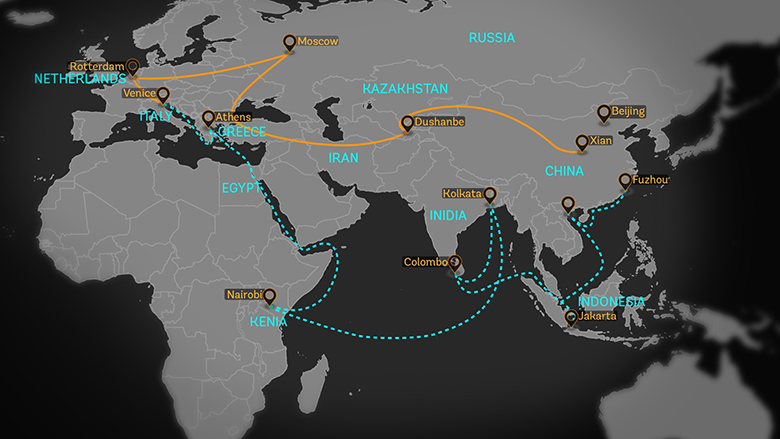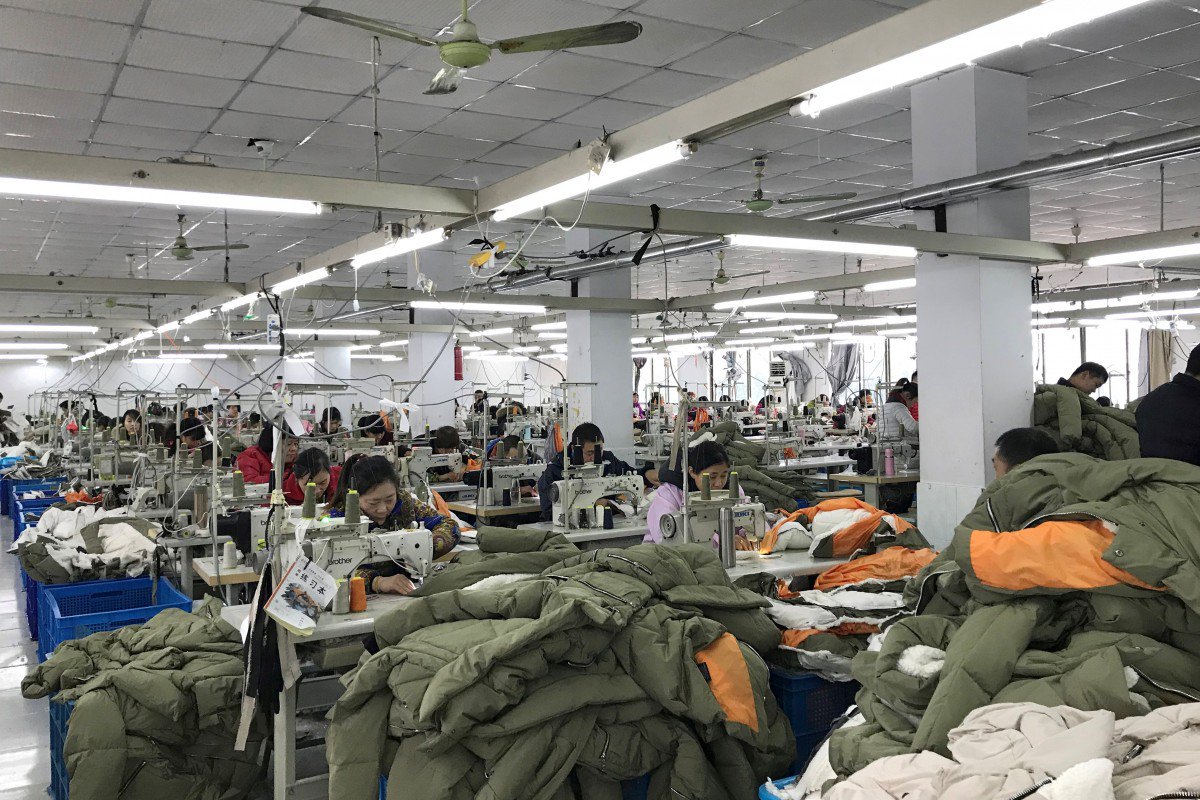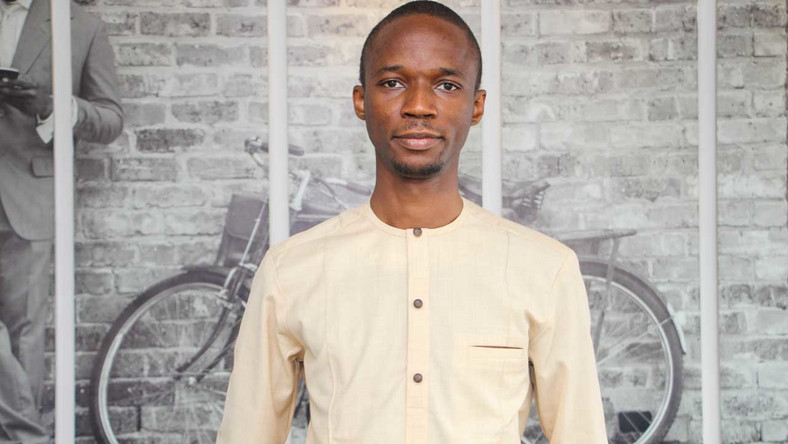The world used to make a lot of things in Japan and elsewhere. Then, things moved to China. It remains so at the moment. Then, China began a global initiative – Belt and Road Initiative (BRI)– to create a new world order in its image. But Donald Trump arrived in the American White House – the seat of power.
The Belt and Road Initiative (BRI) is an ambitious effort to improve regional cooperation and connectivity on a trans-continental scale. The initiative aims to strengthen infrastructure, trade, and investment links between China and some 65 other countries that account collectively for over 30 percent of global GDP, 62 percent of population, and 75 percent of known energy reserves. The BRI consists primarily of the Silk Road Economic Belt, linking China to Central and South Asia and onward to Europe, and the New Maritime Silk Road, linking China to the nations of South East Asia, the Gulf Countries, North Africa, and on to Europe. Six other economic corridors have been identified to link other countries to the Belt and the Road. The scope of the initiative is still taking shape—more recently the initiative has been interpreted to be open to all countries as well as international and regional organizations.
Crises started with trade negotiations, and paralyses set in. But China continues to invest in India and Vietnam – and other Asian countries. Interestingly, as it does that, many Western firms that used to send things to be made in China, now figure out that if this trade war continues, things made in China, could be imperiled.
So, why not move the production systems to Vietnam and India since we do not know how this trade war will end? And that is happening as FDI continues to accelerate in Vietnam, and many of the investors do that because of the core infrastructure China had funded, making the nation better for foreign investors.
Globalization is hard to predict. If Vietnam attracts more investments on producing things, China loses market share. China has invested on things that made Vietnam attractive. Yes, it accelerated this redesign in Asia even though it did not predict Trump.

As we panic over Chinese investments in Africa, let me assure you that no one can effectively predict what the future can offer. There would always be Donald Trump! Yes, if you go into the minds of some leading Chinese leaders today, they may be worried that a really challenging trade war can move production to depart from China to other Asian countries. Vietnam will benefit – it has critical infrastructure investments which are making the country attractive to the West. China has played a key role in those investments through its BRI funds.
Yet, everything is still at infancy: we do not know the final version of the U.S.-China trade agreement, if any. Once that is known, you will understand how China could have ironically accelerated the move of manufacturing out of its shores.This is a huge China’s dilemma as it continues to deepen and expand the BRI map.
LinkedIn Comment on Feed
-
The man Donald Trump is the greatest event in the last two years, one man that managed practically turn everything about political correctness on its head. You do not need to like his personality, but his usefulness cannot be questioned, except those that enjoy hysteria… Let the table shaking continue, at least it could give some African leaders the ‘liver’ to question certain things about global order; you cannot blindly support globalisation if your own future cannot be guaranteed. Leaders need to ask questions and challenge anything you don’t seem to benefit from, others may frown at first; but you can still manage to bring them to negotiation table, for a better deal. Even the young man in North Korea can get the whole world to pay attention; you don’t just follow blindly.
-
Ndubuisi – you assume China wants to be manufacturing / export centric economy. The OBOR investment in infrastructure around the world gives unparalleled access to market, resources and infrastructure for Chinese economy. The more integrated China is to the region- the more influence they yield. My response: Good point. In the long-term BRI is a great vision but in the short term, it may cause some pains. Yet, China’s access to new markets must compensate for potential displacement it causes its companies by strengthening their future competitors. If China funds electricity in Nigeria, Nigeria will stop importing most things from China as Nigeria can make those things at home.
-
Apart from moving production out of China, manufacturers in China are beginning to worry that BRI is now making them to loose market to overseas competitors. Yes we don’t know what they future may hold, but instead of hoping that another Trump may show up tomorrow, it is better that we start making smart deals today with China. In a case of sovereign default (most Chinese loans are structured this way), there is nothing a 100 Donald Trump will do to reverse it – a case in point is hambonata port in siri-lanka







